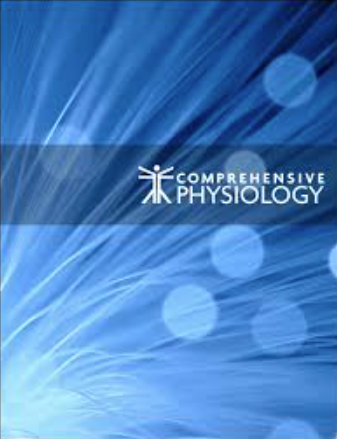求助PDF
{"title":"中风和创伤性脑损伤的环境富集:机制与转化影响》。","authors":"Luwei Nie, Jinxin He, Junmin Wang, Ruike Wang, Leo Huang, Lin Jia, Yun Tai Kim, Ujjal K Bhawal, Xiaochong Fan, Marietta Zille, Chao Jiang, Xuemei Chen, Jian Wang","doi":"10.1002/cphy.c230007","DOIUrl":null,"url":null,"abstract":"<p><p>Acquired brain injuries, such as ischemic stroke, intracerebral hemorrhage (ICH), and traumatic brain injury (TBI), can cause severe neurologic damage and even death. Unfortunately, currently, there are no effective and safe treatments to reduce the high disability and mortality rates associated with these brain injuries. However, environmental enrichment (EE) is an emerging approach to treating and rehabilitating acquired brain injuries by promoting motor, sensory, and social stimulation. Multiple preclinical studies have shown that EE benefits functional recovery, including improved motor and cognitive function and psychological benefits mediated by complex protective signaling pathways. This article provides an overview of the enriched environment protocols used in animal models of ischemic stroke, ICH, and TBI, as well as relevant clinical studies, with a particular focus on ischemic stroke. Additionally, we explored studies of animals with stroke and TBI exposed to EE alone or in combination with multiple drugs and other rehabilitation modalities. Finally, we discuss the potential clinical applications of EE in future brain rehabilitation therapy and the molecular and cellular changes caused by EE in rodents with stroke or TBI. This article aims to advance preclinical and clinical research on EE rehabilitation therapy for acquired brain injury. © 2024 American Physiological Society. Compr Physiol 14:5291-5323, 2024.</p>","PeriodicalId":10573,"journal":{"name":"Comprehensive Physiology","volume":"14 1","pages":"5291-5323"},"PeriodicalIF":4.2000,"publicationDate":"2023-12-29","publicationTypes":"Journal Article","fieldsOfStudy":null,"isOpenAccess":false,"openAccessPdf":"","citationCount":"0","resultStr":"{\"title\":\"Environmental Enrichment for Stroke and Traumatic Brain Injury: Mechanisms and Translational Implications.\",\"authors\":\"Luwei Nie, Jinxin He, Junmin Wang, Ruike Wang, Leo Huang, Lin Jia, Yun Tai Kim, Ujjal K Bhawal, Xiaochong Fan, Marietta Zille, Chao Jiang, Xuemei Chen, Jian Wang\",\"doi\":\"10.1002/cphy.c230007\",\"DOIUrl\":null,\"url\":null,\"abstract\":\"<p><p>Acquired brain injuries, such as ischemic stroke, intracerebral hemorrhage (ICH), and traumatic brain injury (TBI), can cause severe neurologic damage and even death. Unfortunately, currently, there are no effective and safe treatments to reduce the high disability and mortality rates associated with these brain injuries. However, environmental enrichment (EE) is an emerging approach to treating and rehabilitating acquired brain injuries by promoting motor, sensory, and social stimulation. Multiple preclinical studies have shown that EE benefits functional recovery, including improved motor and cognitive function and psychological benefits mediated by complex protective signaling pathways. This article provides an overview of the enriched environment protocols used in animal models of ischemic stroke, ICH, and TBI, as well as relevant clinical studies, with a particular focus on ischemic stroke. Additionally, we explored studies of animals with stroke and TBI exposed to EE alone or in combination with multiple drugs and other rehabilitation modalities. Finally, we discuss the potential clinical applications of EE in future brain rehabilitation therapy and the molecular and cellular changes caused by EE in rodents with stroke or TBI. This article aims to advance preclinical and clinical research on EE rehabilitation therapy for acquired brain injury. © 2024 American Physiological Society. Compr Physiol 14:5291-5323, 2024.</p>\",\"PeriodicalId\":10573,\"journal\":{\"name\":\"Comprehensive Physiology\",\"volume\":\"14 1\",\"pages\":\"5291-5323\"},\"PeriodicalIF\":4.2000,\"publicationDate\":\"2023-12-29\",\"publicationTypes\":\"Journal Article\",\"fieldsOfStudy\":null,\"isOpenAccess\":false,\"openAccessPdf\":\"\",\"citationCount\":\"0\",\"resultStr\":null,\"platform\":\"Semanticscholar\",\"paperid\":null,\"PeriodicalName\":\"Comprehensive Physiology\",\"FirstCategoryId\":\"3\",\"ListUrlMain\":\"https://doi.org/10.1002/cphy.c230007\",\"RegionNum\":2,\"RegionCategory\":\"医学\",\"ArticlePicture\":[],\"TitleCN\":null,\"AbstractTextCN\":null,\"PMCID\":null,\"EPubDate\":\"\",\"PubModel\":\"\",\"JCR\":\"Q1\",\"JCRName\":\"PHYSIOLOGY\",\"Score\":null,\"Total\":0}","platform":"Semanticscholar","paperid":null,"PeriodicalName":"Comprehensive Physiology","FirstCategoryId":"3","ListUrlMain":"https://doi.org/10.1002/cphy.c230007","RegionNum":2,"RegionCategory":"医学","ArticlePicture":[],"TitleCN":null,"AbstractTextCN":null,"PMCID":null,"EPubDate":"","PubModel":"","JCR":"Q1","JCRName":"PHYSIOLOGY","Score":null,"Total":0}
引用次数: 0
引用
批量引用


